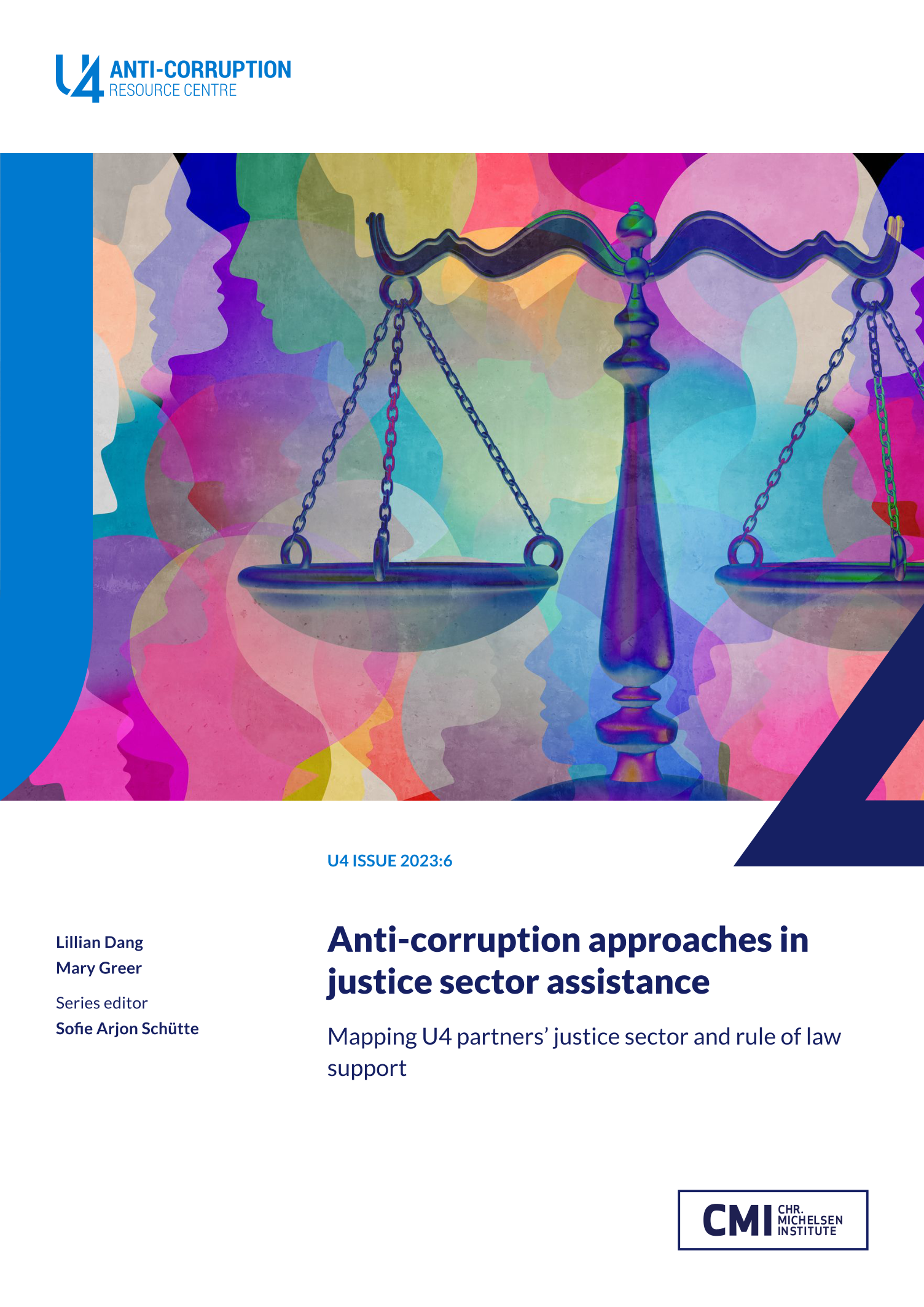Main points
- Anti-corruption mainstreaming has been an objective of development cooperation for nearly two decades, yet it remains difficult to determine the extent of anti-corruption integration in this cooperation. There is no dedicated anti-corruption policy objective marker for reporting on official development assistance.
- Between December 2022 and May 2023, we mapped 174 justice sector interventions supported by U4’s eight partners, the development cooperation ministries and agencies of Canada, Denmark, Finland, Germany, Norway, Sweden, Switzerland, and the United Kingdom.
- Less than half of the interventions in our mapping address corruption, and just 18% address it directly or explicitly. A further 22% address it indirectly by implementing measures that can potentially prevent, control, or reduce corruption, without explicitly stating that as an objective.
- We found very little direct integration of anti-corruption programming in legal aid interventions, which represent a high proportion of justice sector assistance provided by U4 partners. This relates in part to the challenges of collaborating directly with governments while simultaneously calling out corruption by public officials.
- Given the centrality of the justice system in the fight against corruption, the integration of anti-corruption approaches in justice sector assistance warrants further attention. With partners typically preferring indirect rather than direct approaches, future research should focus on understanding the nature, scope, and effectiveness of indirect approaches.



